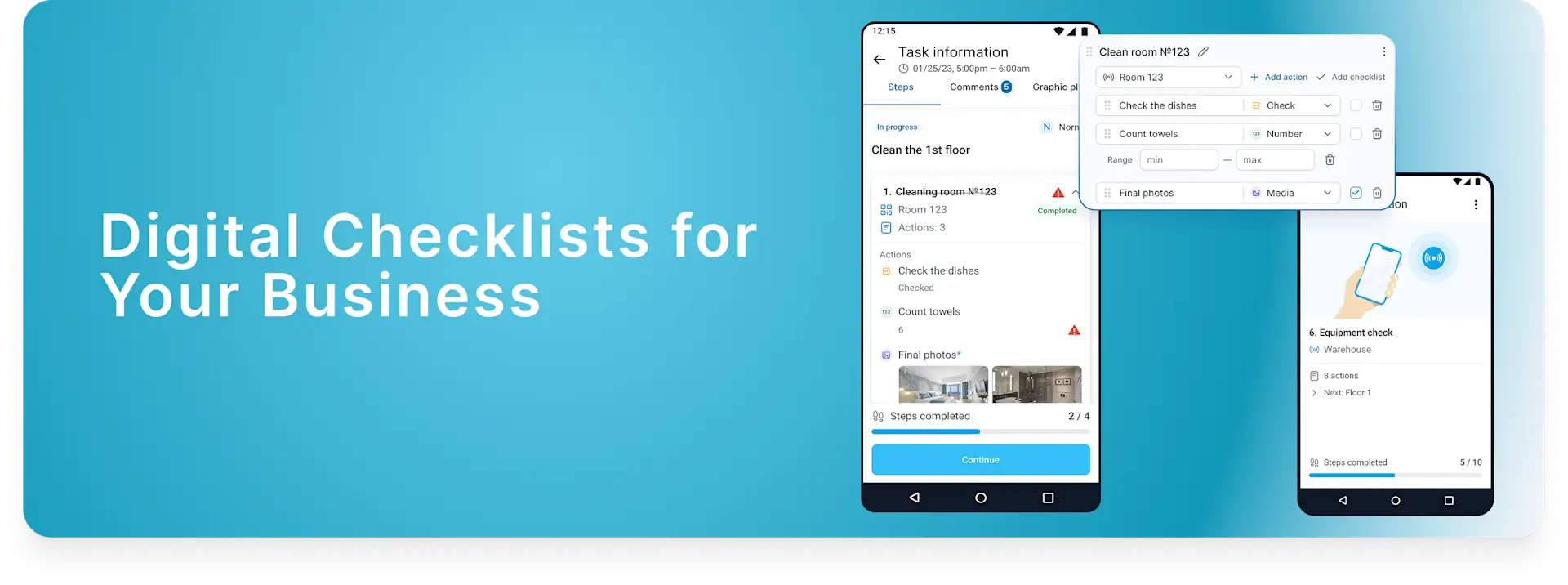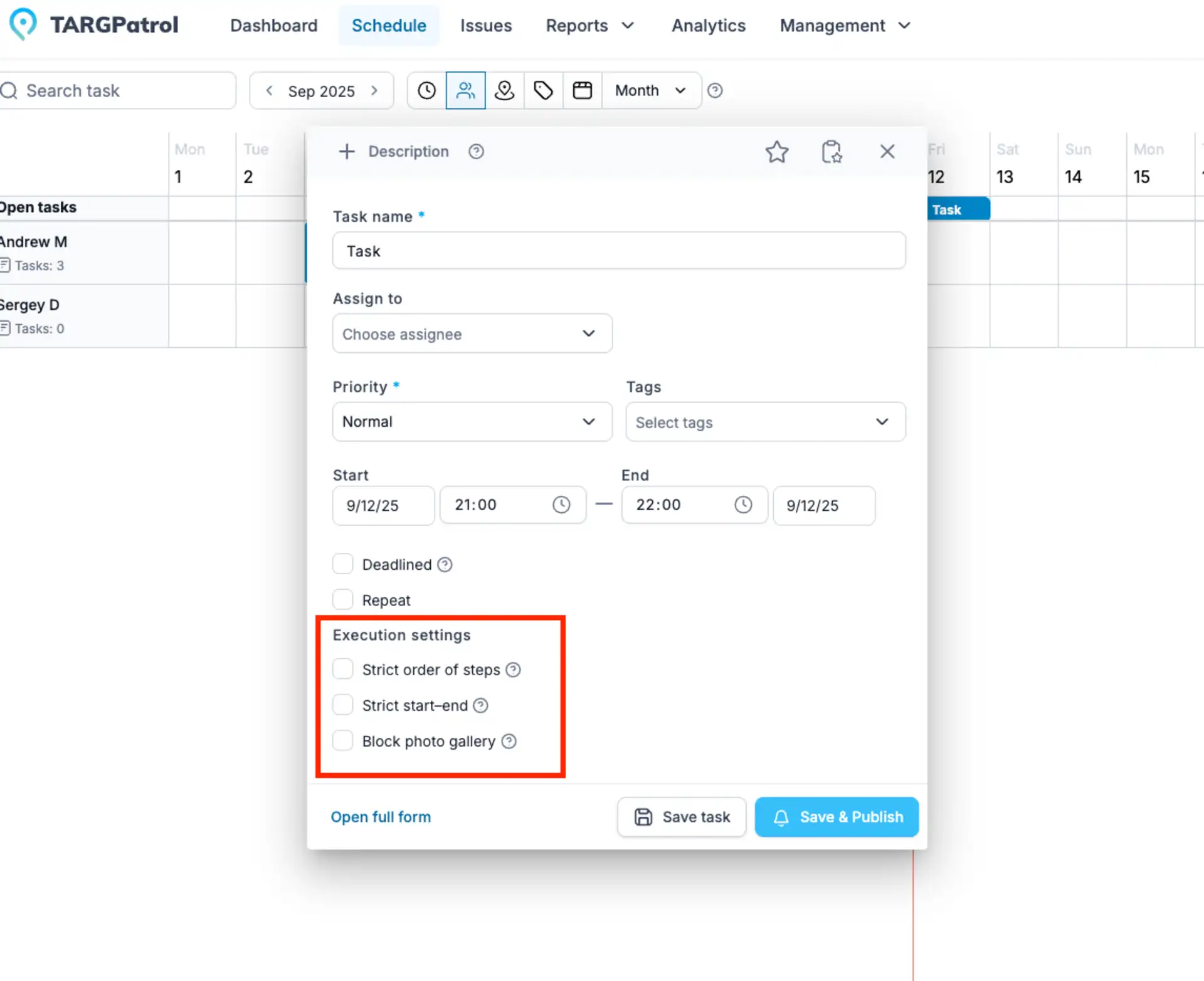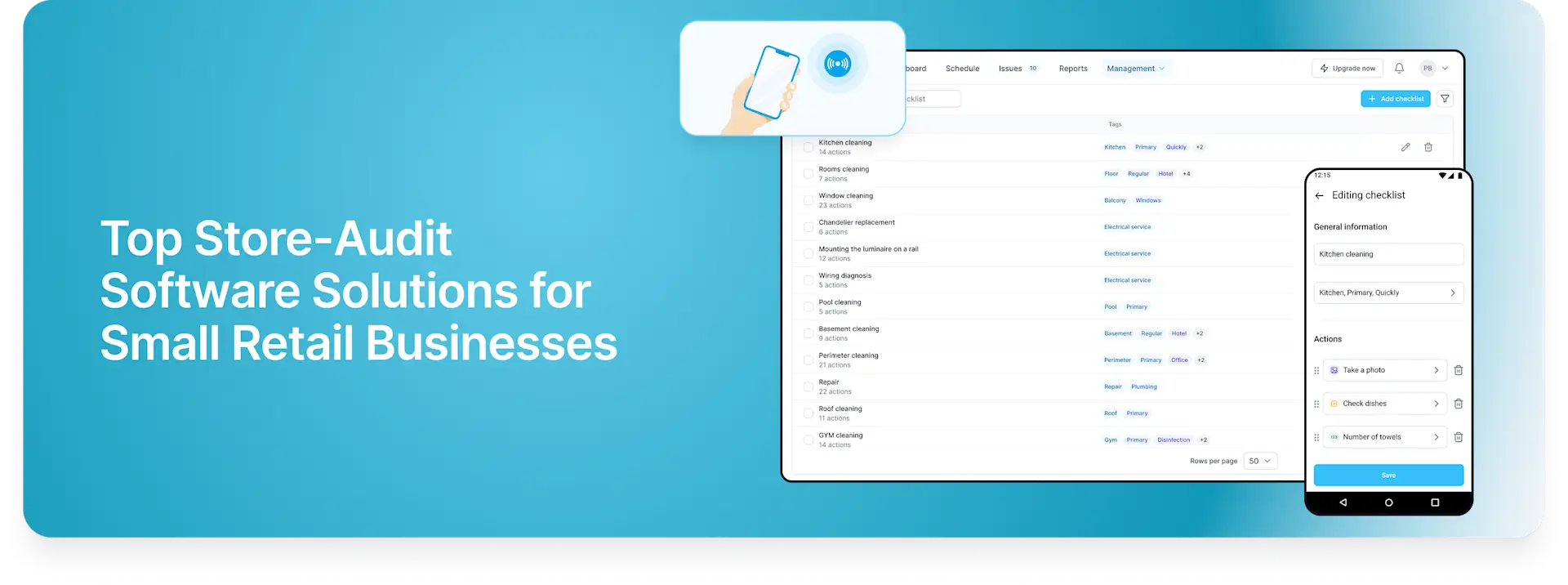Cleaning Apps to Keep Teams Organized
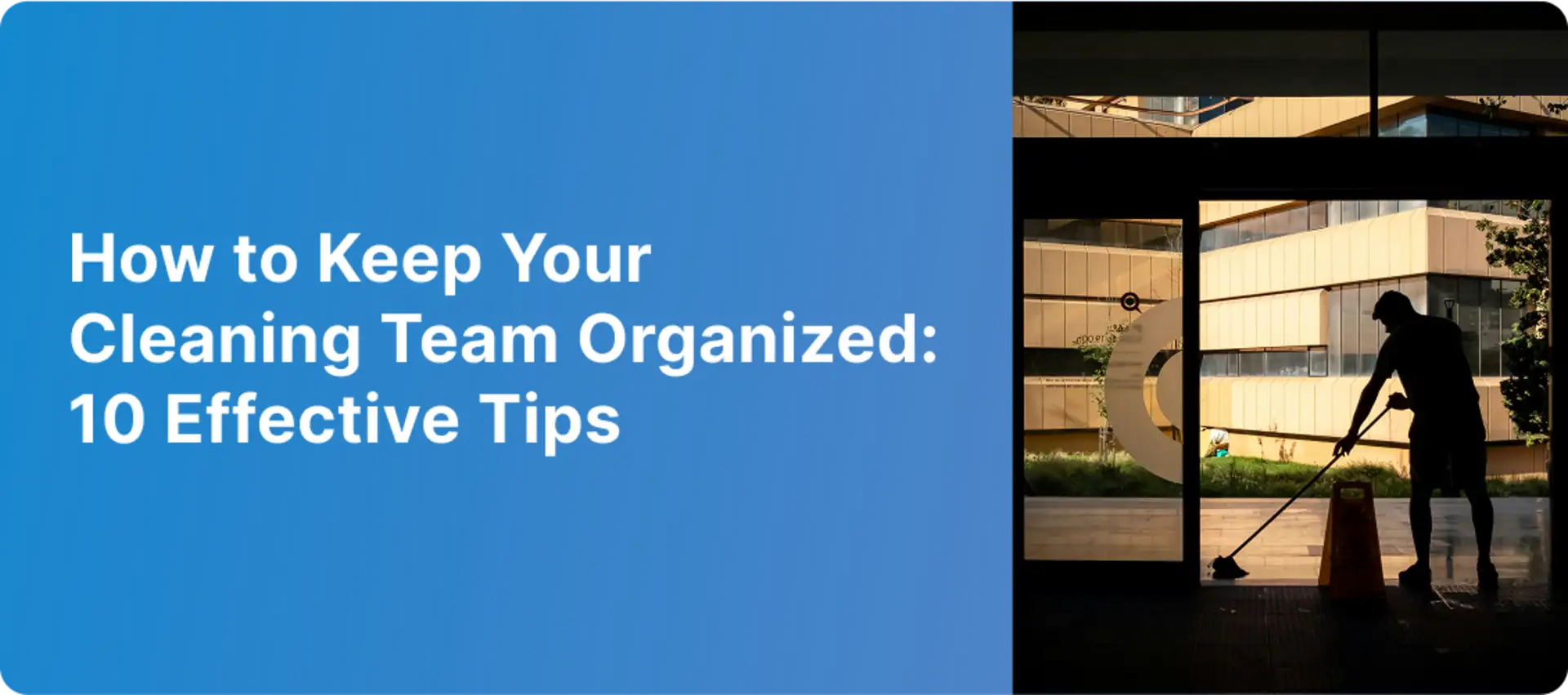
Using Cleaning Management Apps to Keep Your Team Organized
How to Ensure Employee Punctuality: Practical Strategies for the Cleaning Services Industry
Punctuality is the foundation of trust in the cleaning industry. Clients expect cleaning services to start on time and leave their space spotless, whether it's a home, office, or commercial property. But how do you ensure that employees not only arrive on time but also maintain discipline throughout the workday? Let’s break it down step by step.
1. Clear Expectations – The Basis of Trust
When was the last time you discussed with your team what "being on time" actually means? It may seem obvious to you, but for some, the difference between 8:00 and 8:10 isn’t a big deal. However, for a client expecting service at an exact time, it’s a problem.
Set clear rules: Define what counts as being late. For example: "If the workstation is not occupied by 8:01, it is recorded as tardiness."
Reminders that don’t annoy: Use short messages in group chats or set timers in scheduling apps.
Creating shared expectations gives employees a clear reference point - far better than relying on assumptions, right?
2. Flexibility That Works for Everyone
In the cleaning industry, sticking to rigid work hours isn’t always practical. Locations are spread across the city, and transportation can be unpredictable. In such conditions, flexibility is your ally.
Set time ranges for shift starts: For example, from 7:30 to 9:00.
Use technology to optimize routes and schedules: This not only reduces stress but also saves resources.
Success story: Pristine Clean implemented flexible scheduling, and employees reported that morning shifts became more comfortable. The result? A drop in tardiness and increased overall loyalty.
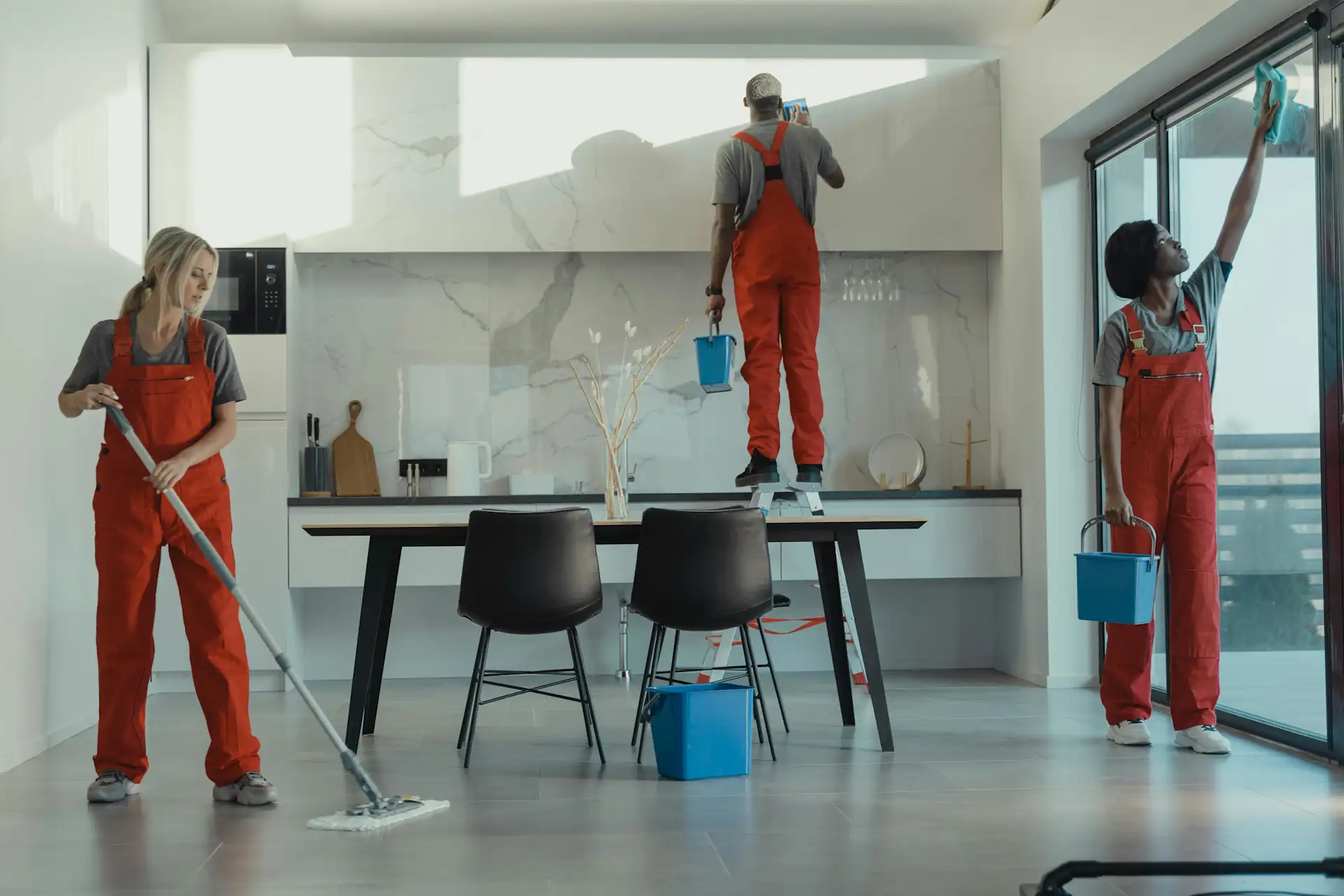
3. Punctuality with a Smile: Reward System
When was the last time you saw employees genuinely excited about small bonuses? Even symbolic rewards can be powerful motivators.
Monthly awards: "Most Punctual Employee of the Month" could earn a small gift or an extra day off.
Team achievements: If the entire department avoids tardiness, organize a team lunch or a small corporate event.
This model worked brilliantly for Molly Maid, where just a couple of months after launching the program, 80% of employees started arriving on time. Why not give it a try?
4. Fair Oversight and Adjustments
Let’s be honest: nobody likes penalties. But sometimes, they are necessary—especially when conversations and warnings don’t work. The key is transparency.
Start with a soft approach: Have one-on-one discussions to understand the reasons behind tardiness.
If the issue persists, escalate accordingly — up to and including schedule revisions or employment conditions.
But here’s a question for you: Are you sure your rules apply equally to everyone? Because as soon as employees notice exceptions, team discipline will fall apart.
5. Time Management as a Success Tool
Not everyone knows how to manage their time effectively. Sometimes employees are late not because they are lazy, but because they struggle with planning their day.
Organize training or mini-webinars on time management. Even an informal format, like "5 Golden Rules of an On-Time Employee," can be helpful.
Conduct a survey: "What are your biggest scheduling challenges?" The issue could be as simple as an alarm clock or transportation, and the solution may be easier than expected.
When The Cleaning Authority introduced a time management program, they saw not only improved punctuality but also reduced employee stress. Achievable for you? Absolutely!
6. Lead by Example
Imagine this: You’re one minute late to a meeting. Most employees will pretend not to notice, but inside, trust will erode slightly. Discipline starts with leadership.
Set the standard by being on time for all meetings.
Publicly acknowledge those who demonstrate discipline.
When employees see that leadership follows the rules, they are more likely to do the same.
7. The Art of Data Analysis
Do you truly understand why employees are late? Or are you just guessing? Data can be your secret weapon for improvement.
Analyze trends: Are tardiness issues more common on weekends? At specific locations?
Implement automatic data tracking systems to get a clearer picture.
These small steps give you a significant advantage. After all, haven’t you noticed how well-informed decisions can change the game?
8. Comfort – The Key to Productivity
Employees who feel valued are more likely to show up on time. How can you create this atmosphere?
Improve break areas. Maybe add comfortable chairs or board games?
Make mornings pleasant: Offer coffee or a light snack 15 minutes before shifts.
A simple example: A company with a well-equipped break room reduced staff turnover by 25%. Proof that comfort matters!
9. Quality Control as Motivation
In the cleaning industry, it’s not just about showing up on time but also about delivering quality service. How do you ensure this?
Introduce before-and-after photo reports.
Use checklists to verify task completion.
This system works well both for internal control and for building client trust.
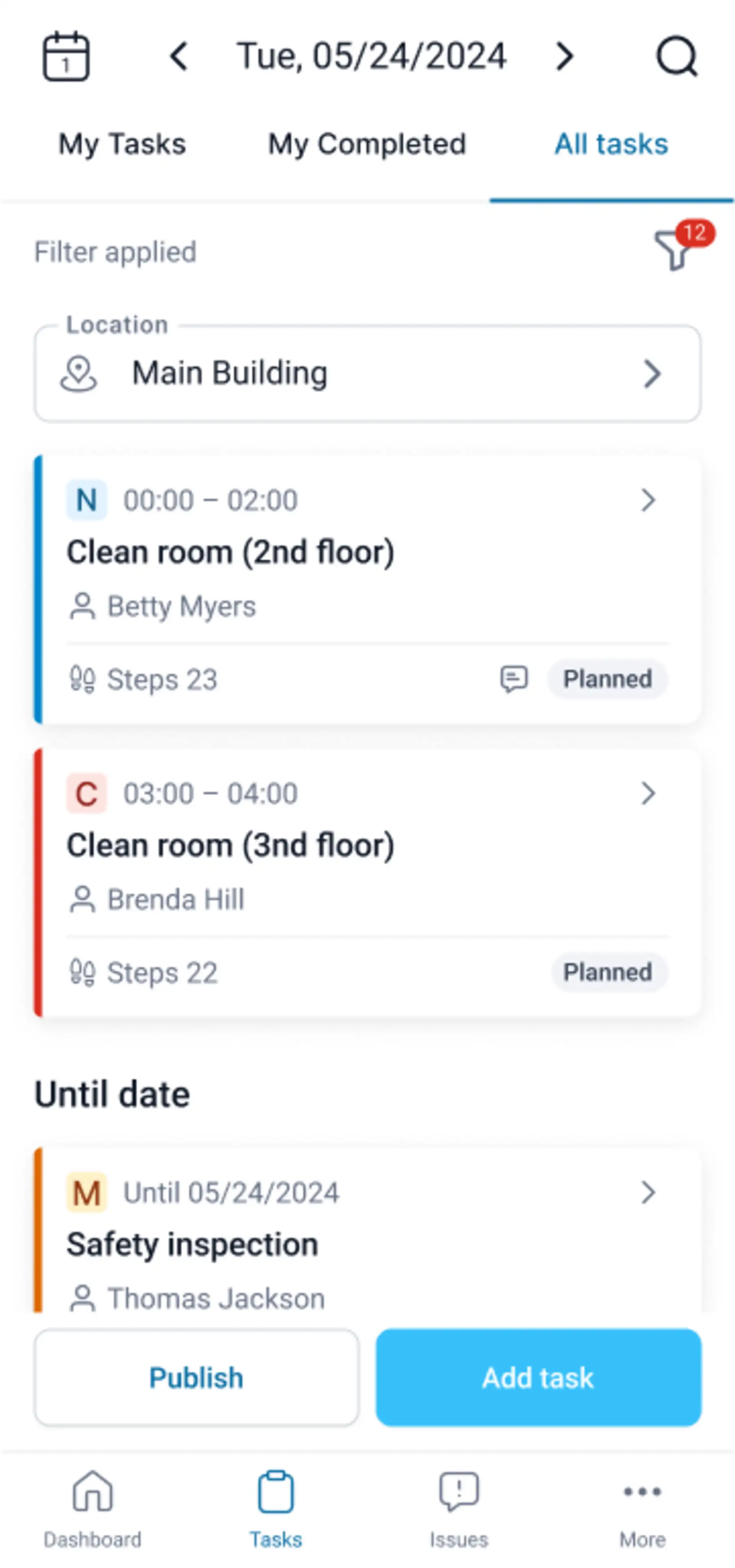
10. Prime Cleaning and TARGPatrol: A Success Story in Technology Implementation
When Prime Cleaning partnered with TARGPatrol, their biggest challenge was disorganized work time management. The team struggled with tardiness, delayed reports, and a lack of transparency in task completion. What changed after implementation?
Transparent operations: Employees log arrival and departure times via a mobile app, while management accesses real-time data.
Photo reports: Each cleaning stage is documented with before-and-after images.
Flexible analytics: Managers analyze data to adjust schedules and boost efficiency.
Results:
35% reduction in tardiness.
20% increase in employee efficiency.
Improved service quality, leading to stronger client trust.
This case study proves that technology can transform a business. Want to replicate Prime Cleaning’s success? Implementing TARGPatrol is your first step.
Conclusion
Discipline isn’t about strictness — it's about creating a system that benefits both employees and clients. Use these ten steps to foster responsibility and trust in your company. And with technology like TARGPatrol, you can make the process even smoother.
